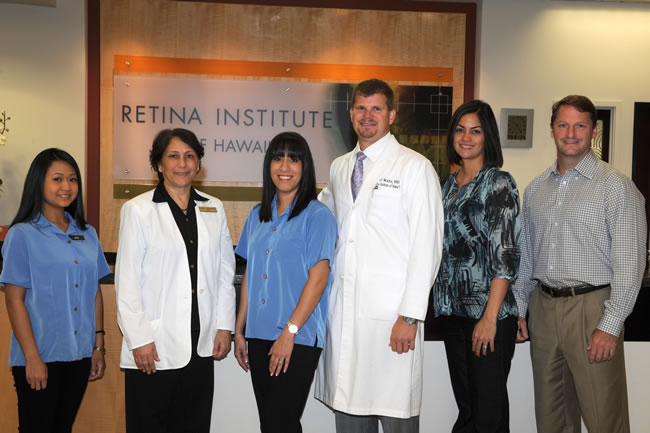Clarified Medical Attention
By Dr. Michael Bennett
Founder and president of Retina Institute of Hawaii
One of the unforeseen consequences of a tough economy we’re seeing more and more of is that patients are delaying their health care and sacrificing doctor visits to save money and to stay afloat financially. These consequences, coupled with delayed referrals exacerbated by ever-increasing paperwork demands on physicians imposed by third-party payers, is resulting in advanced diseases.
At the Retina Institute of Hawaii, we’re facing the issue head on by expanding our services, launching new collaborations and embracing innovative ways to provide the medical attention people deserve and need in a more timely manner.
After hearing from our referring doctors that their patients were having difficulties getting to our practice, we launched a free courtesy Mercedes Benz shuttle service for new patients and those requiring procedures in our office.
brt_2
This has helped tremendously in overcoming a fairly simple barrier to quality health care. While we have been providing services on the Neighbor Islands for more than a decade, we recently outfitted our Hilo, Kona and Kahului offices with the same technical equipment as we have at our flagship Oahu location.
We also provide care to those patients without medical insurance.
And in the underserved areas of Hawaii, we continue to offer free retina screenings through Project Vision. Founded by Retina Institute of Hawaii in 2007, this 501(c)3 nonprofit’s mission is to enhance the quality of life by improving sight, preventing blindness and advancing medical knowledge through research. Selected as A Center of Excellence-USA, the Retina Institute of Hawaii continues to lead the world in advancing vision and sight-restoring therapies. By sharing our clinical expertise with industry innovators, a large portion of our research is provided free of charge.
Research efforts are currently underway to make stem-cell therapies a potential option to minimize the significant visual loss that occurs with our patients.
We are also one of a few select centers in the world working with innovations like the Intra Ocular Telescope and Retinal Pigment Epithelium Transplantation. We are seeing positive results with patients becoming less dependent on others and improving their overall quality of life.
At the Retina Institute of Hawaii, we are doing what we can to make it easier for our patients to see us earlier in the process, and by providing innovative technologies and the highest-quality patient care.
For more information visit retinahawaii.com.






